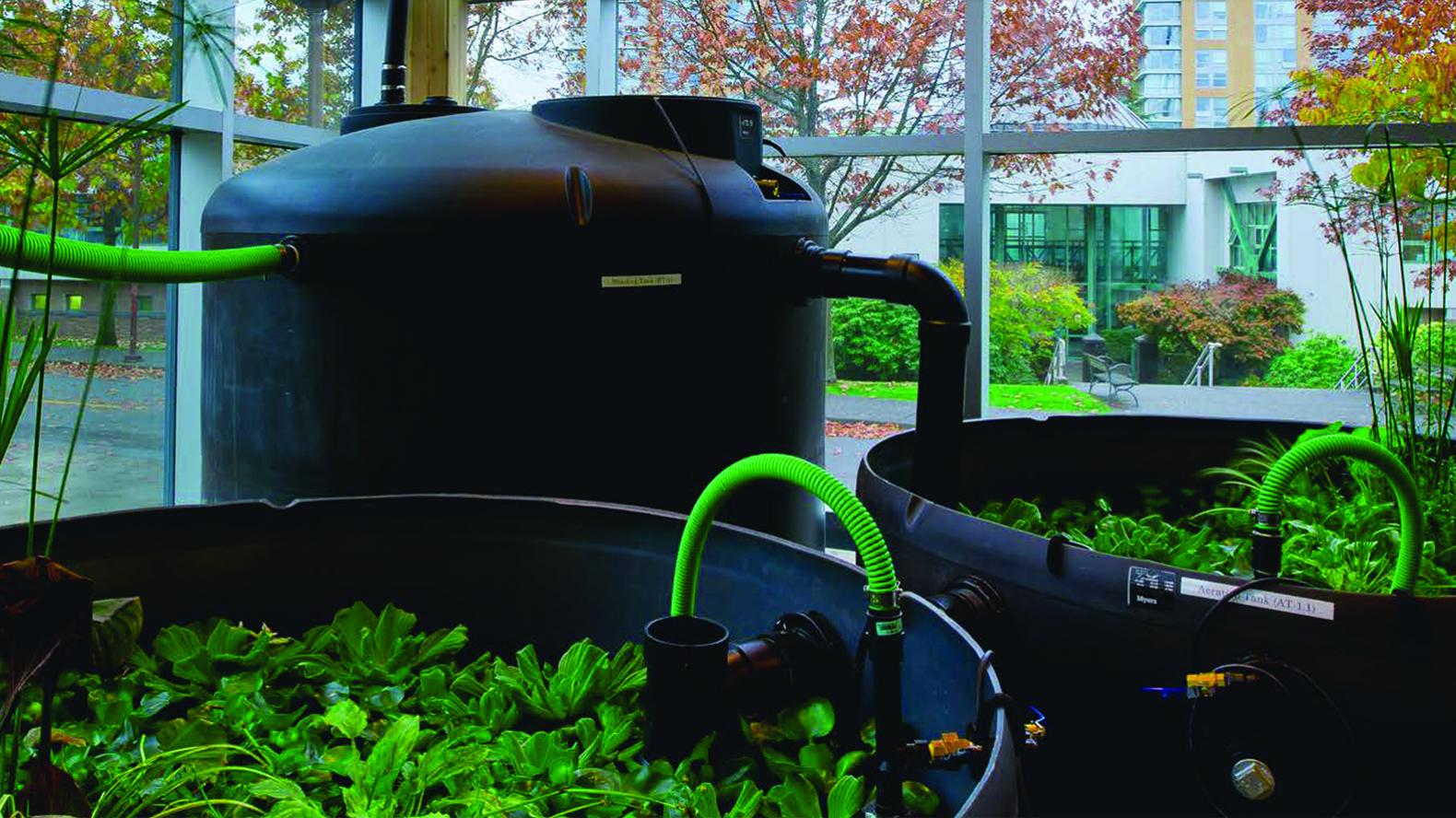
Freshwater is one of the world's most precious resources. For UBC alumnus James Roberts, it is also essential to community building worldwide.
James is passionate about the potential for urban wastewater treatment and reuse to revitalize communities, support urban agriculture, and reduce pollution. At UBC, his master's thesis in civil engineering focused on green technologies to achieve these goals.
Supported by the RBC Blue Water Project, James studied the Solar Aquatics System — an innovative water treatment system that uses sunlight and biological processes to treat wastewater, which had been adapted for use by UBC's Centre for Interactive Research on Sustainability (CIRS) building. It would end up informing his work professionally when he relocated to Hawaii.
"Hawaii has a very large stock of residential cesspools, used by over 400,000 people, mandated to be replaced by 2050. There's all these people that need to install alternative onsite wastewater treatment systems," says James. "One of the reasons I came to Hawaii was to form a company, and we're applying for National Science Foundation funding to develop a research project. My experience at UBC CIRS gave me a walk through of the problems that can arise for end users of onsite wastewater treatment, and that's a fundamental perspective that I need to have."
The concept of treating wastewater onsite at a community scale — with emerging technologies such as the Solar Aquatics System — makes both environmental and financial sense.
"It's becoming more of a consideration in urban areas as water stresses get added to the mix, because the closer you treat wastewater to its source, the simpler (and more cost effective) it is to reuse," says James. "That's the fundamental basis behind the design for a building like CIRS — it increases the opportunity for reuse."
Now in Hawaii, James Roberts is taking those lessons learned at UBC and applying a local approach to a global problem.